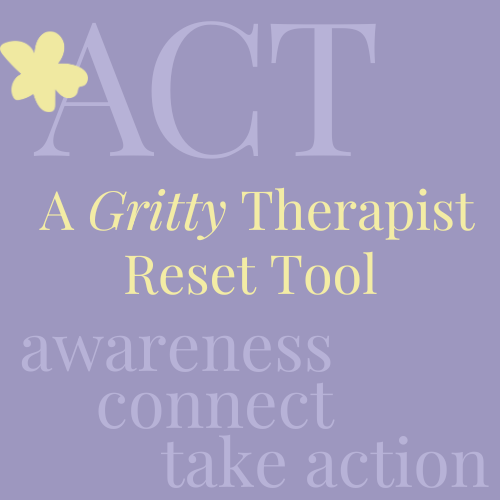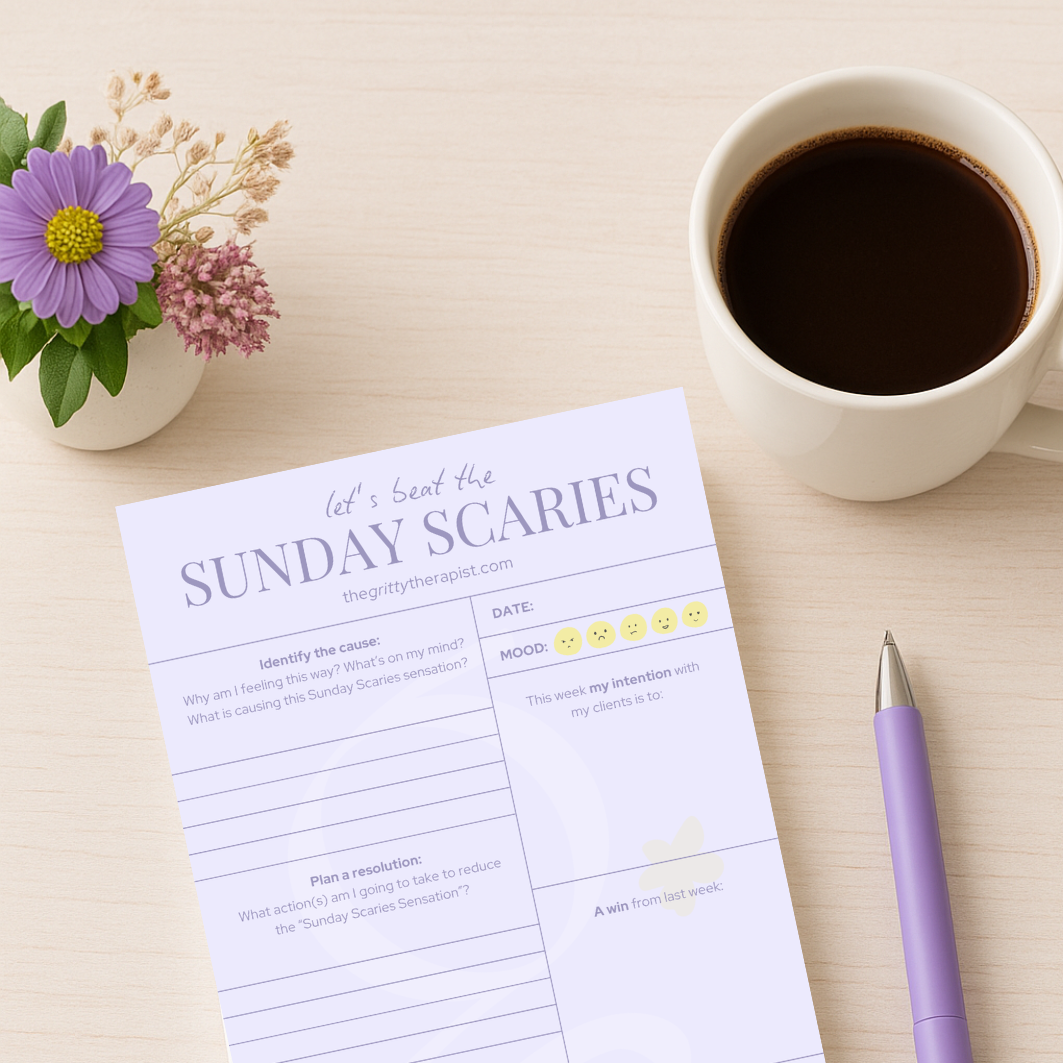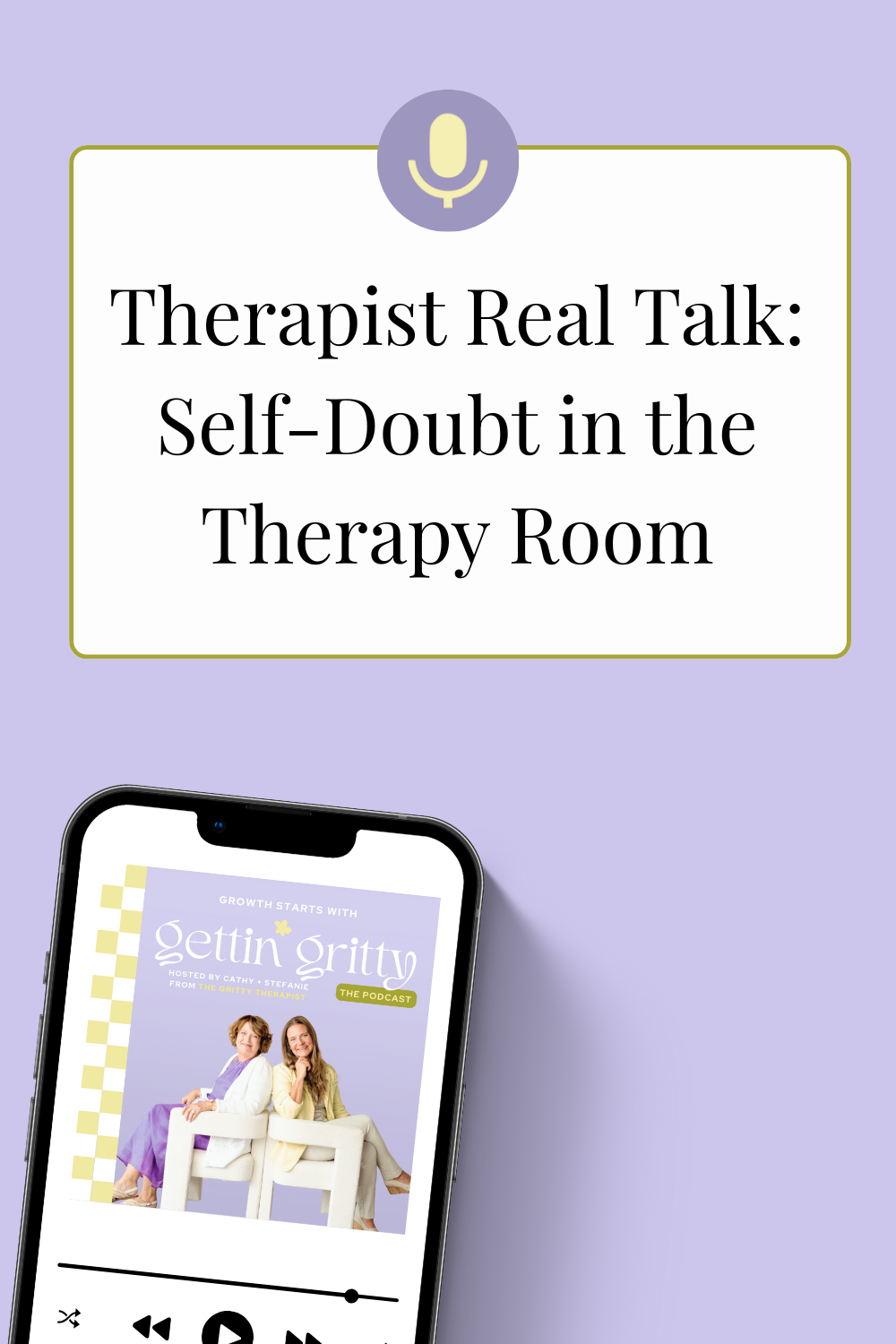Being Bad Is Good: Why Every Therapist Has to Fumble Before They Find Their Footing
Let’s be real: No therapist walks into the room feeling fully prepared. You sit across from a client, manual open on your lap, + your inner voice whispers: “I don’t know what I’m doing.”
If that’s you? You’re in good company.
Here’s the truth: being bad is good. You can’t skip the mess. Feeling awkward, uncertain, or unqualified isn’t proof you’re failing–it’s the exact process of building grit and clinical confidence.
In this episode of The Gritty Therapist Podcast, we (Stef & Cathy) share our own “bad first tries”–in EMDR sessions, court letters, and supervision–and why those moments gave us the confidence we have today.
What you’ll walk away with:
Why fumbling through new techniques is part of being a good therapist.
How to move from training high to real-world practice.
What to say to clients when you’re trying something new.
Why supervision and colleague feedback accelerate growth.
How to stop chasing the “perfect training” and start building confidence now.
Grab your coffee, take a deep breath… and let’s get gritty.
New Therapist Confidence: Why Feeling “Bad” Means You’re Learning
If you’ve ever left a session thinking, “I’m not qualified for this,” you’re not broken. you’re just where every new therapist starts.James Clear (author of Atomic Habits) says it best:
“Anything new is accomplished by unqualified people.”
That means you can’t start off feeling ready.
The only way to build clinical confidence is to risk being bad at something first.
We’ve all been there: coming back from a training, pumped to use a new tool, only to sit with a client and freeze.
That discomfort? It’s grit training in action.
How to Handle the “I Feel Like a Bad Therapist” Moment
When we first trained in EMDR, Stef came back fired up. She sat with a teen client, handed over the tappers, flipped open the manual… and then, for almost 30 minutes, only said one phrase:
“Go with that.”
Over and over. Nothing else.
The client didn’t complain (she didn’t know any different). But Stef walked away thinking, “Oof. That was bad.”
Here’s what she learned: manuals are maps, not drivers. At some point, you have to set the book down and trust yourself. The second session? Much better. Each rep after that, even when it felt clumsy, grew her confidence.
👉 Takeaway: If you’re waiting until you “feel ready,” you’ll wait forever. The only way to get good is to start messy.
Building Trust: What to Say to Clients When You’re Trying Something New
Here’s something we wish more people said out loud: it’s okay to tell a client, “This is new for me–we’ll take it slow together.”
That’s not unprofessional. That’s real. And your clients? They usually feel relief when you show them that growth doesn’t have to look perfect.
A simple script you can borrow:
“I just learned a process that might help with [specific trigger]. It’s newer for me, so we’ll try it in small steps and keep checking in. If it doesn’t land, we’ll pivot together.”
👉 Takeaway: Being open builds trust. You don’t have to perform expertise–your honesty is often what deepens the therapeutic relationship.
Therapist Supervision and Consultation: Why You Can’t Build Grit Alone
One of our earliest “ouch” moments? Drafting a court letter that included the word “finally.” As in: “Finally this child came to our clinic.”
A colleague caught it before it went out. Without that feedback, it could’ve sounded arrogant in front of a judge.
Moments like that are why supervision and peer review matter. From Deb Wesselmann reminding us “if you don’t use it, you’ll lose it” to colleagues gut-checking our tone, community has been the difference between burnout and growth.
👉 Takeaway: You’ll build confidence faster if you let others in. Ask colleagues to review your letters, bring questions to supervision, or share your “bad tries” with trusted peers.
Stop Chasing the Perfect Therapy Training: Practice Is What Builds Confidence
It’s easy to stack certificate after certificate, hoping the next training will finally make you feel “ready.” But here’s the reality: no training alone will give you that comfort. Confidence doesn’t come from a manual — it comes from using the skill, even clumsily at first, until it starts to feel natural.
One thing that does help? Having rhythms that ground you. For us, Sunday nights used to be the most stressful part of the week — anxious, chaotic, and full of the dreaded Sunday Scaries. Over time, we learned to create routines that flipped Sundays into a time we actually look forward to: a chance to reset, get grounded, and feel ready for what’s ahead.
That’s why we created the Sunday Scaries Notepad + Digital Guide. It’s designed for therapists like you who want a weekly reset ritual that keeps you in control of your week (instead of your week controlling you). 👉 Get the Sunday Scaries Tear-off Notebook
Final Thoughts: You Can’t Skip the Grit
So here’s what we need you to remember: you’re not failing, and you’re not behind. Feeling clumsy is the proof that you’re growing. You can’t skip the “grit”–it’s what makes you steady, real, and effective in the room. Keep pressing in.
We are so passionate about this topic, because you can have all of the “theory” and academic learning in the world, and still hit a wall when you’re mid-session with a client. It happens. You’re human. And so we created a free resource to help therapists, like you, continue to develop their grit so that they can be better as therapists and so they can live a life that is lighter, happier, and more balanced. You can grab it below 👇
Because you don’t need more theory. You need your next step.
Let’s get gritty,
Stef + Cathy
So if you’ve ever thought, “I don’t know enough,” or felt like there’s a gap between theory and practical tools that you can start using tomorrow in client sessions, then we have some clinical resources that could work really well for you…👇






